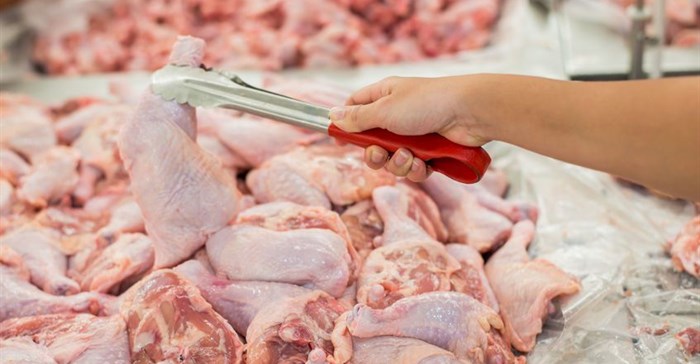The Association of Meat Importers and Exporters (AMIE) has called on the South African government to arbitrate in the brewing tariff battle between local poultry producers and importers, saying that "the right of South Africans to access a prime source of dietary protein must outweigh the factional interests of sectors of the poultry producing industry."

©pumikan sawatroj via
123RFNoting that the South African Poultry Association (SAPA) had recently claimed that they were in discussions with government regarding policy issues on imports, Paul Matthew, CEO of AMIE said omitting AMIE, would invalidate any talks, increase the divisions between the parties and place many consumers at risk of losing access to a staple source of protein.
"AMIE in the interests of breaking through sectarian interests that are of no benefit to the consumer and the economy has initiated an independent study of the poultry industry and its markets. We are prepared to make this available to the government.
Furthermore, AMIE sees an excellent opportunity for the Minister of Agriculture, Land and Rural Development, Thoko Didiza and her counterpart at Trade and Industry, Minister Ebrahim Patel, to provide leadership by bringing together all the parties around the table to discuss a more constructive way forward for the industry, instead of enacting punitive measures against one section of the sector," says Matthew
At the heart of the dispute between SAPA, which represents the interests of the five largest broiler producers in the country, and AMIE, which represents independent importers of bone in and bone out chicken pieces, is the SAPA demand that they are provided protection against imports.
SAPA has aggressively lobbied the Department of Trade and Industry and the International Trade Administration Commission of South Africa (ITAC) to approve tariff increases that will see:
• A surge from 37% to 82% ad valorem for bone-in cuts of chicken.
• A massive jump from 12% to 82% ad valorem for boneless cuts of chicken.
• AMIE in its response has pointed out that it appears that no attention is being paid to the facts that:
• Granting SAPAs request would be entrenching a monopoly for five huge producers who were booming, with at least one reporting profits of more than R1,4bn and others showing profits that were much higher than a few years ago.
• That the feed price, impacted on by the drought of 2015, has dropped by up to 40%, yet the consumer had not seen the benefits-prices for chicken had, in fact, escalated padding further the profits of the mega-producers.
• Some of the SAPA members were vertically integrated- meaning that they owned significant parts of the value chain that supplied the local broiler industry. Examples would be feed mills and day old chick suppliers that are the local distributors of the main chicken breeds, like Ross and Cobb.
• The entire production of the majors was accounted for with massive amounts of chicken being supplied to formal retail outlets, and the fast food sector, KFC and Nando’s being examples.
• That AMIE’s activities are supplementing supply, with different sectors of the local market receiving imported chicken stock and providing employment which a massive tariff hike would endanger.
• The local industry is unable to supply South Africa’s demand for chicken on its own.
"AMIE believes that a one-sided view driven by a paid lobbyist with no experience of the chicken industry is not giving consideration to all the issues that could see consumers giving up access to affordable protein."
"Sales of chicken are down in South Africa but that is because the economy has contracted the recent announcement that GDP has dropped by 3.5% attests to this. The fuel price is also escalating and consumers who are under pressure are cutting household budgets. Imposing additional tariffs on chicken would add to this burden, not alleviate it. The challenges facing the poultry industry across the value chain cannot be resolved through tariffs, instead, they require a comprehensive and long-term commitment by all stakeholders.
"Any investigation and findings guiding future policy on the poultry industry would be skewed if we did not participate. We call on the government to act swiftly and in the interests of all South Africans by taking appropriate steps to prevent what could be the emergence of a monopoly in our vital poultry industry," concludes Matthew.









































